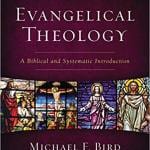Bruce K. Waltke and James M. Houston
The Psalms as Christian Praise: A Historical Commentary
Grand Rapids: Eerdmans, 2019.
Reviewed by Dr. Jill Firth
“The Psalms are part of the hymnbook of the Lord Jesus Christ,” states the Preface, and Jesus’ use of “I AM” statements makes him “the object of praise in the Psalms” for Christians. The Psalms as Christian Praise focuses on psalms in Book IV of the Psalter (Psalms 90–106), treating Psalms 90–93, 95–100, and 103–104, and omitting Psalms 94, 101–102, and 105–106. God’s kingship is seen particularly in psalms which proclaim “The Lord reigns” (also known as Yahweh malak psalms).
The first chapter considers “The Psalms as Christian Praise,” and outlines why and how to praise God. Distinctions in the function of wordplays in the Pentateuch between commemoration, anticipation, description and renaming (from Austin Surls) are used to examine God’s personal name, YHWH, in the Old Testament, which can be translated “I AM.” The authors go on to discuss the Trinitarian revelation of I AM in the New Testament, and the use of this concept in the church fathers. In this volume, God is named as I AM. A Davidic lens for these praise psalms is suggested, as the headings of the Septuagint (LXX), the ancient Greek version of the Old Testament, ascribe a number of additional psalms to David compared with the Hebrew text (MT), including Psalms 91, 93-99, 101, 103–104. A “prosopological” reading strategy is proposed, focusing on reading the psalms as “the voice of Christ and his church to the Father,” and as the words of Christ to the church. This interpretive strategy, popularised by church fathers including Augustine and Reformers including Luther, is then applied throughout the book. In addition, the volume endorses a “prolepsis” reading of these psalms about God’s kingship, in the light of messianic “inaugurated eschatology,” where Christ’s universal reign, which will be consummated at the parousia, has begun in his incarnation, life, death, resurrection, ascension and session. The claim “I AM is King” (Yahweh malak) is already true in the reign of Christ.
Bruce Waltke brings his skill as a Hebrew exegete and grammarian to the text of the Psalms, while James M. Houston brings insights from his expertise in the history of ideas and spiritual theology. Each chapter begins with “Voice of the Psalmist,” including a fresh translation from the Hebrew original, and a commentary displaying scholarly skill and human sympathy, followed by a conclusion which summarises the major theological contribution of the Psalm. The exegetical sections include detailed footnotes, which link the syntactical discussion to commentaries, grammars, and lexica, with helpful background information and semantic and syntactical observations on the Hebrew text. This is followed by “Voice from the Church” including well-known voices from the Christian tradition such as Augustine, Bernard of Clairvaux, Dante, Luther and Calvin, and voices less familiar to evangelicals, such as Juan de Valdes and Robert Bellarmine. It is good to see the names of a few women scholars in the modern author section of the Author Index, though the list of commentators up to the end of the sixteenth century does not include any women. The poetry of Mary Sidney Herbert (1561-1621) is mentioned on Psalm 92, and Old Testament scholars cited include Gabriele Braun, Emilie Briggs, Christine Forster, Susan Gillingham, Carol Harrison, Erika Moore, Beth Tanner, and Phyllis Trible, along with theologian Janet Soskice. The earlier volume on lament, The Psalms as Christian Lament (2014) featured a wider range of Eastern theologians including Theodoret of Mopsuestia, Gregory Nazianzen, and Gregory of Nyssa, but this volume has a more Western selection. In the Index of modern authors of The Psalms as Christian Praise, Dennis Ngien is cited in comments on Luther in Psalm 90, and Daniel Wu’s insights on honor and shame are utilised in the introduction, and on Psalms 96 and 97.
The Psalms as Christian Praise (hereafter, PACP) is the third volume in a series with The Psalms as Christian Lament (hereafter, PACL, 2014) and The Psalms as Christian Worship: A Historical Commentary (hereafter, PACW, 2010). Each volume brings detailed exegesis of selected Psalm texts along with a rich heritage of Christian devotion and interpretation. PACW treats thirteen psalms of various genres which are significant in the Christian tradition (Psalms 1–4, 8, 15–16, 19, 22–23, 51, 110, 139), and PACL considers six of the penitential psalms (Psalms 6, 32, 38, 102, 130, 143. Psalm 51, the seventh of the penitential psalms, was treated in the earlier volume), along with four other laments (Psalms 5, 7, 39, 44).
It has been interesting to watch the changing representation of the Tetragrammaton (YHWH) in these volumes. In the first volume (PACW), the authors use capital letters, I AM, then in PACL, YHWH was represented by “I AM” with capital letters and quotation marks (e.g. PACL, 27, 28), and in the current volume, they use I AM, in italics, but without quotation marks.
The Psalms as Christian Lament gives a strong Christological reading of the Psalter, along with heartening insights from the history of scholarship and devotion. It will deepen the reader’s ability to appreciate and praise God, and will be of value to pastors, preachers, and theological students.
Rev. Dr. Jill Firth is Lecturer in Hebrew and Old Testament, Ridley College.












